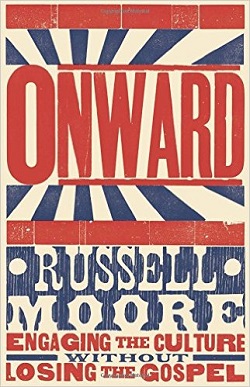By Bob Allen
Biblical inerrancy is at the heart of the debate about whether or not homosexuality is a sin, the Southern Baptist Convention’s top spokesman for moral and religious liberty concerns said at a recent gathering of journalists who cover religion.
Russell Moore, president of the SBC Ethics & Religious Liberty Commission, said at the Religion Newswriters Association annual conference Aug. 27-30 in Philadelphia that people who call themselves evangelicals while affirming homosexuality as morally acceptable are only “so-called” evangelicals but in fact are “revisionist voices” who reject the authority or primacy of Scripture, according to a Sept. 2 news story by Christian Post reporter Nicola Menzie.
 Asked about David Gushee, a one-time professor at Southern Baptist Theological Seminary who recently announced that after many years he has changed his mind on LGBT issues, Moore said he doesn’t think a faithful evangelical can arrive at a position that says “our theology was wrong.”
Asked about David Gushee, a one-time professor at Southern Baptist Theological Seminary who recently announced that after many years he has changed his mind on LGBT issues, Moore said he doesn’t think a faithful evangelical can arrive at a position that says “our theology was wrong.”
“I think that most of the voices that you see calling for a revision of the Christian sexual ethic have already long ago negotiated away other more basic pieces of orthodoxy,” Moore said. “So the controversies that we typically have with, say a David Gushee or a Matthew Vines, are not first and foremost controversies over the interpretation of particular texts. They’re controversies over an understanding and inspiration of Scripture.”
“If one says the Apostle Paul, for instance, would have spoken differently about homosexuality if he had known what we know now about homosexuality, or in some cases, Jesus himself was wrong about sexual orientation, well, that’s not a debate over particular passages,” Moore said. “That’s a debate over a very foundational, fundamental issue of what does it mean to believe the Bible and to follow the authority of Scripture.”
Moore said when Christians debate homosexuality, whether they have a high view or low view of the Bible “is where the problem lies.” He said the small number of congregations recently making headlines for changing their views on homosexuality “were long ago negotiating away other doctrines and issues” like biblical inspiration.
Moore contrasted those stories to March 2014, when World Vision had to reverse a decision to hire Christians in same-sex marriages after intense criticism from evangelical leaders.
“If you want to see where evangelicalism is on the sexuality issues, look at what happened with World Vision,” Moore said. “World Vision made a revision when it comes to marriage, and within a week, the evangelical movement showed that it was still evangelical. World Vision turned around, and I think handled it very well in terms of rebuilding trust there.”
According to the Christian Post story, Moore said he does not ascribe the term evangelical to gay-affirming Christians because by definition the word means someone who upholds biblical inerrancy. The same principle, he said, applies to the term “gay Christian.”
“There are some people who use that term to mean same-sex attracted but who are living out lives of celibacy believing the historic Christian sexual ethic,” Moore said. “In that case — of course, I think that the Christian life is a life of cross-carrying, fighting against temptation; we have different points of temptation — that every Christian is in a place of struggling against temptation.”
Moore’s comments came during a discussion about his new book, Onward: Engaging the Culture without Losing the Gospel.
